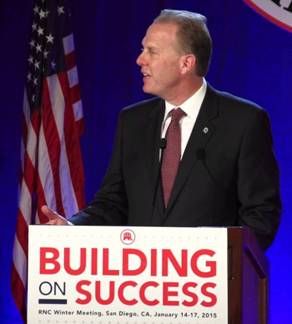Is San Diego safest big city? Or having a police crisis?
This good news got prominent play in California’s second-largest city this weekend:
For the fourth year running, San Diego had the lowest murder rate among the country’s ten largest cities.
The department investigated 32 homicides, down from 39, giving San Diego, the eighth largest city in the nation, a murder rate of 2.4 killings per 100,000 residents, according to data compiled by U-T San Diego.
By comparison, Phoenix, which has a slightly larger population than San Diego, had a murder rate of 7.7 per 100,000, while San Antonio, another city of similar size, had a rate of 7.3. Philadelphia had the highest rate of the nation’s ten top cities, with 16 killings for every 100,000 residents.
 But this good news has an unusual subtext: If San Diego is so safe, why is there bipartisan agreement that more must be done to widely boost compensation for current San Diego police officers and to make the force bigger? This story is from Feb. 6:
But this good news has an unusual subtext: If San Diego is so safe, why is there bipartisan agreement that more must be done to widely boost compensation for current San Diego police officers and to make the force bigger? This story is from Feb. 6:
San Diego and its police officers labor union announced on Friday a tentative agreement for compensation increases that aim to help reverse recent struggles with recruiting new officers and retaining existing staff.
The five-year pact doesn’t include salary hikes until July 2018, but most officers would see large jumps in their take-home pay starting this July because the $92 million deal includes sharp increases in benefits for veteran employees.
Those include thousands in higher stipends for uniforms, additional holiday pay and lower health insurance contributions.
“We’ve had a real crisis when it comes to recruiting and retaining some of our best and brightest police officers,” Mayor Kevin Faulconer said at a Friday morning press conference in City Heights announcing the deal. “That ends today.”
The recruitment and retention issues are backed by the numbers. The San Diego Police Department has about 180 budgeted, unfilled positions, and the agency says 249 officers left the force from July 2013 through last month. An independent survey shows the city has low police pay relative to other jurisdictions.
But if the city is enjoying such a safe run, why would its leaders consider the status quo unacceptable?
We’re in a strange new era when it comes to the social sciences and crime, which has gone down for three decades for reasons that researchers cannot agree on. Old theories about declining exposure to lead in childhood, increased incarceration because of tougher sentencing laws and the increase in abortions of unwanted children after the 1973 Roe v. Wade ruling are still around, but there are plenty of new ideas. Vox last month cited 16 different explanations offered by researchers with varied backgrounds and different levels of hard evidence.
Police union supported by both parties
In San Diego, however, this esoteric debate never came up. Instead, the police union’s strong ties with Republican Mayor Kevin Faulconer, the Democrats who make up the majority of the City Council and the city’s downtown establishment resulted in a consensus that more, better-paid officers are needed.
Faulconer also needs a less polarized environment at City Hall if he hopes to achieve an agenda that includes funding an expanded convention center, possibly helping build an NFL stadium and bringing coastal prosperity to minority neighborhoods south of Interstate 8. Having a good relationship with by far the city’s most powerful union can only help this agenda.
Outside of San Diego, there is a presumption that Faulconer wants to run someday for statewide office as a moderate, can-do mayor with plenty of Democratic allies. The pay deal with the police union fits this narrative.
But inside the city, Faulconer fits a familar mayoral archetype, not necessarily that of a man with big statewide ambitions. Affable Republican moderates have led the city for most of the last 40 years, from Pete Wilson to (then moderate) Roger Hedgecock to Dick Murphy to Jerry Sanders.
And though currently popular, Faulconer could face a tough re-election fight in 2016. While initial media reports depicted the GOP councilman winning election easily in a February 2014 special election against Democratic Councilman David Alvarez, his final margin of victory was only 5 percent, in an election with poor Democratic turnout.
Chris Reed
Chris Reed is a regular contributor to Cal Watchdog. Reed is an editorial writer for U-T San Diego. Before joining the U-T in July 2005, he was the opinion-page columns editor and wrote the featured weekly Unspin column for The Orange County Register. Reed was on the national board of the Association of Opinion Page Editors from 2003-2005. From 2000 to 2005, Reed made more than 100 appearances as a featured news analyst on Los Angeles-area National Public Radio affiliate KPCC-FM. From 1990 to 1998, Reed was an editor, metro columnist and film critic at the Inland Valley Daily Bulletin in Ontario. Reed has a political science degree from the University of Hawaii (Hilo campus), where he edited the student newspaper, the Vulcan News, his senior year. He is on Twitter: @chrisreed99.
Related Articles
Fresno taxpayers object to misleading petition title and summary
A group of Fresno taxpayers hoping to overturn the city’s recent water rate hike has filed a formal complaint accusing
Money Money Money!
Anthony Pignataro: Former eBay chief Meg Whitman spent $65.29 American per vote to win the Republican nomination for Governor of
Debra Bowen revelations appear to explain her failure on job
Saturday’s Los Angeles Times’ bombshell about Secretary of State Debra Bowen’s struggles with depression struck a sad chord with many



